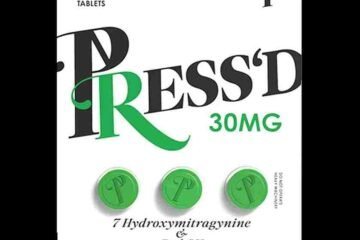Ever feel like you’re just “hoping” you’re compliant?
Let’s be honest—compliance can sometimes feel like trying to herd invisible cats. The documents look good, the checklists are ticked, and everyone’s nodding. But deep down, there’s that quiet worry: Did we miss something? Is this actually working, or are we just paper-pushing?
That’s where ISO auditor training steps in. Not as a magic wand, not as a boring formality—but as a practical, hands-on, surprisingly eye-opening way to get your team thinking clearly, acting consistently, and spotting the small stuff before it snowballs.
Because compliance isn’t a one-time event. It’s a way of working. And honestly, it’s a lot less stressful when you’ve got trained eyes looking in the right places.
So, what exactly is ISO auditor training?
In plain terms, it’s training that teaches someone how to objectively and effectively audit a system against ISO standards—whether that’s ISO 9001 for quality, ISO 14001 for environmental management, ISO 27001 for information security, or any of the dozens of others out there.
But let’s not reduce it to definitions. Think of auditor training as learning how to be both detective and therapist.
You’re not just checking if things were done—you’re asking why they were done that way, what risks exist, and whether the system really supports the goals it claims to. And you’ve got to do all of that while keeping people at ease, encouraging honest responses, and digging past surface-level answers.
Not easy. But deeply satisfying once you learn how.
What makes a great auditor?
A clipboard doesn’t make an auditor, and neither does memorizing a standard. The best internal or lead auditors bring a blend of curiosity, empathy, technical thinking, and just enough skepticism to raise an eyebrow when something feels “off.”
You need to know the clauses, sure. But more importantly, you need to:
- Read between the lines of documents and conversations
- Connect processes across departments
- Understand both the written procedures and the real workflows
- Recognize when a risk has been papered over instead of addressed
Auditor training gives you that lens. It’s not just a course—it’s a way of seeing your organization with sharper focus.
The subtle power of compliance: it’s not about saying “no”
Too many people think compliance is all about rules, restrictions, and red tape. But here’s the truth: strong compliance enables confidence.
When you know the processes are solid—when your audits confirm the controls are working—then people can stop second-guessing and start focusing on the actual work. That’s the goal.
Auditor training plays a big role here. It teaches you how to confirm compliance without grinding operations to a halt. How to identify gaps without creating panic. How to recommend improvements without pointing fingers.
It’s quality assurance with a human touch.
What does the training actually cover?
If you’re picturing eight hours of dry lectures and slide decks, stop. Good ISO auditor training—whether it’s internal auditor, lead auditor, or refresher—blends technical knowledge with real-world practice. You’ll typically cover:
- ISO standard basics: Not just what each clause says, but what it means in context
- Types of audits: Internal, external, supplier audits—each has its own vibe
- Audit planning: Creating checklists that matter (not just fill-in-the-blank forms)
- Conducting interviews: How to ask the right questions, and listen between the lines
- Gathering evidence: What counts, what doesn’t, and how to document without drowning in paperwork
- Reporting and follow-up: Writing findings clearly, classifying nonconformities, and recommending actions that actually get done
And yes, there’s usually a bit of role-playing. You’ll run mock audits, assess sample records, maybe even argue about whether a finding should be major or minor. It’s a bit awkward at first—but super useful later.
Let’s talk about objectivity (and why it’s surprisingly hard)
One of the trickiest things about being an internal auditor is this: you’re reviewing the work of people you might share coffee breaks with. Or report to. Or quietly admire. That makes objectivity… complicated.
Auditor training helps you build the skill of stepping back—looking at evidence, not assumptions. It also teaches you how to phrase findings in a way that feels respectful, not accusatory.
Instead of saying, “You messed this up,” it becomes, “The documented process wasn’t followed here—can we explore why?”
That tone shift? It matters more than you think. It’s the difference between people hiding mistakes and people welcoming improvements.
Why audit skills matter across the board
Even if you’re not officially “the auditor,” these skills have a way of creeping into your daily work—and that’s a good thing.
- A project manager who’s been auditor-trained spots potential risks earlier.
- A team leader who understands audit flow asks better questions in stand-ups.
- A compliance officer with audit skills knows how to prepare teams without stress.
In fact, many organizations now encourage people across departments—procurement, HR, operations—to go through basic internal auditor training. Not because they’ll run formal audits, but because the mindset is just that useful.
Audits aren’t just for finding faults—they’re for building systems that hold
Here’s a funny thing you learn after your tenth or twelfth audit: the most valuable insights don’t come from the big, dramatic nonconformities. They come from the quiet patterns.
That same missing signature in three departments? That recurring confusion over who owns a process? Those small things that never made it onto the risk register? Yeah—those are where systems either quietly strengthen… or quietly fail.
Auditor training helps you spot those early warning signs. And when you address them? Everything starts feeling tighter. Clearer. A little less chaotic.
Let’s not pretend it’s all smooth sailing
Sure, the training helps. But audits can still be awkward. Sometimes people get defensive. Sometimes leadership pushes back. And sometimes the system just isn’t mature enough to handle full transparency.
That’s normal. The trick is learning how to navigate it with empathy and clarity. Good auditors aren’t harsh—they’re clear-eyed. They ask questions that feel curious, not accusatory. They create space for honest answers.
And yes, they also learn when to let silence sit for a beat. You’d be surprised how much people reveal when you just… pause.
Certification or no certification—why training still matters
Here’s a common question: “Do we need ISO auditor training if we’re not going for certification?”
Short answer? Not necessarily. But if you’re trying to build a system you trust—where responsibilities are clear, risks are managed, and improvement isn’t just a buzzword—then training is still a huge asset.
Because even without a certificate on the wall, the need for discipline, review, and internal honesty doesn’t disappear.
Honestly, some of the most effective audits I’ve seen came from companies that weren’t certified—they were just committed to doing things well.
Real results: what trained auditors actually change
Here’s a snapshot from a real case (names removed for obvious reasons):
A logistics company was dealing with constant client escalations—late updates, missing paperwork, inconsistent process flow. They weren’t certified to anything, but their leadership was frustrated and looking for answers.
They put five mid-level managers through ISO 9001 internal auditor training. Two months later? They weren’t just running audits—they’d restructured three workflows, introduced a process ownership matrix, and created a shared digital log for internal findings.
Customer complaints didn’t vanish overnight. But they dropped by 40% in six months.
All because a few people learned how to see the gaps—and how to fix them, collaboratively.
Final thoughts (and a nudge)
ISO auditor training isn’t about producing compliance robots. It’s about creating thoughtful, confident professionals who understand how to look at a system, ask the right questions, and guide it toward better performance. You don’t have to be perfect. You just have to be curious, clear, and committed to helping your organization grow in the right direction.
So, whether you’re getting certified, staying certified, or just want your systems to stop feeling like a house of cards—maybe it’s time to send someone to auditor training. (And if that someone is you, don’t worry—it’s not nearly as dry as it sounds. In fact, it might just change how you see everything.)





